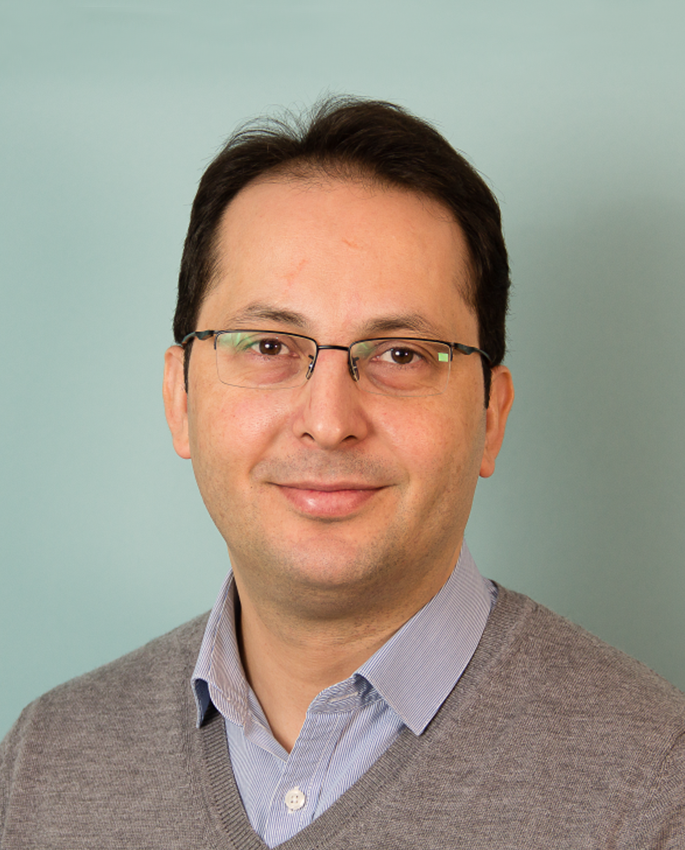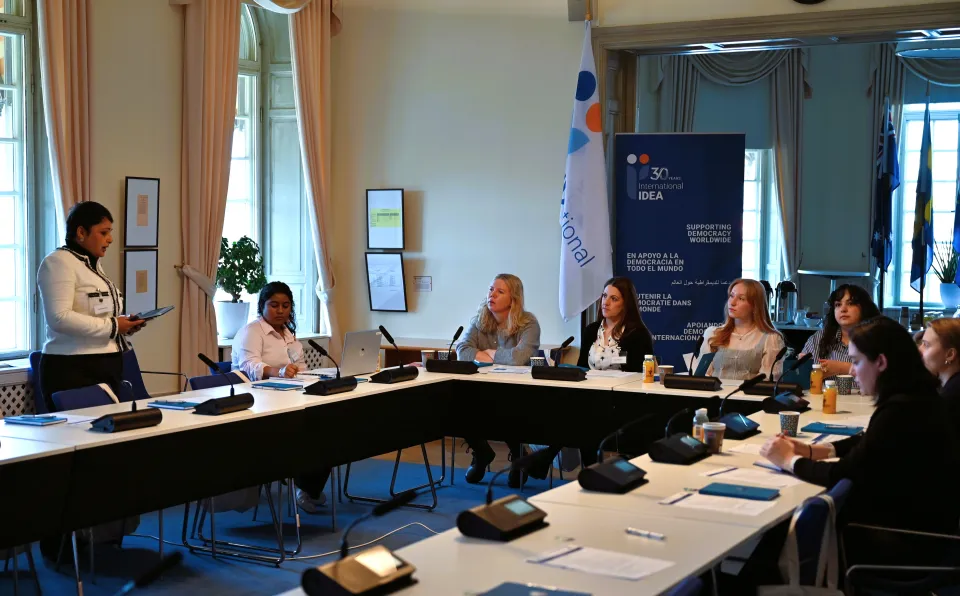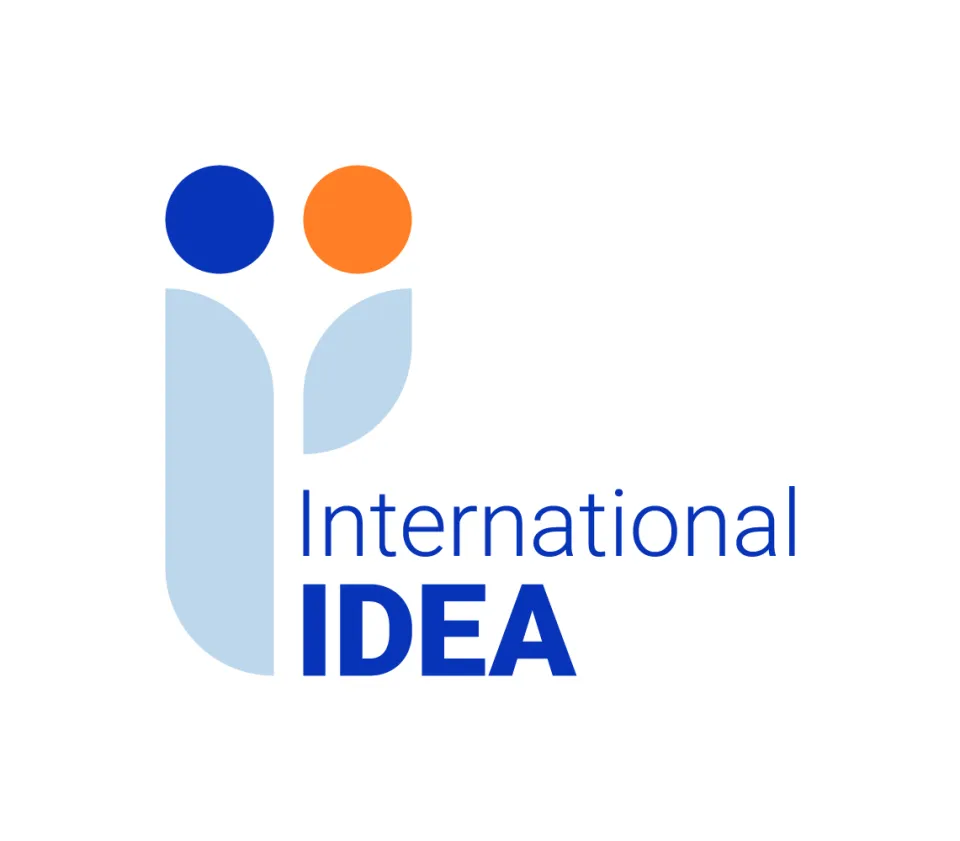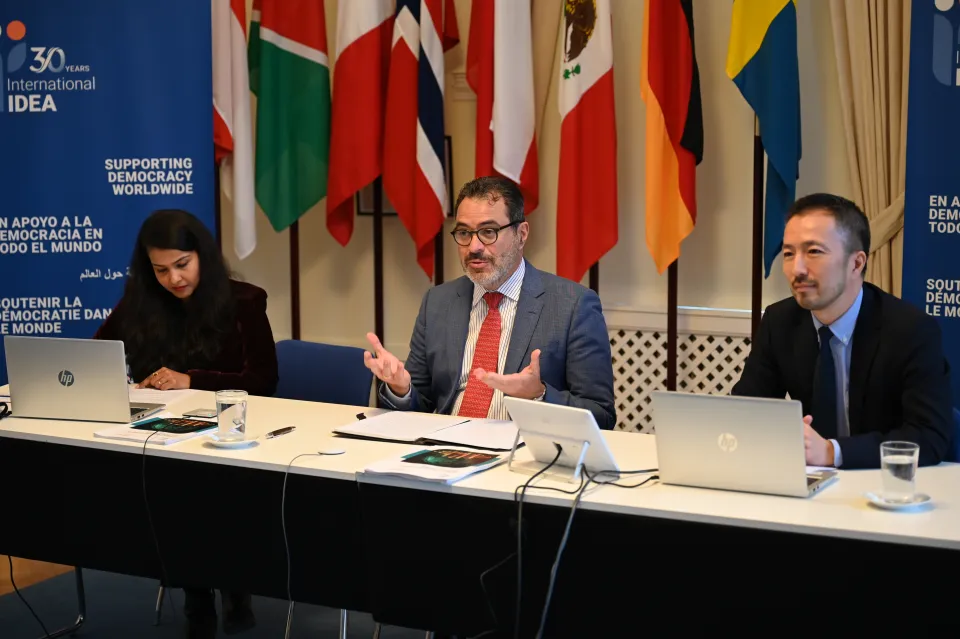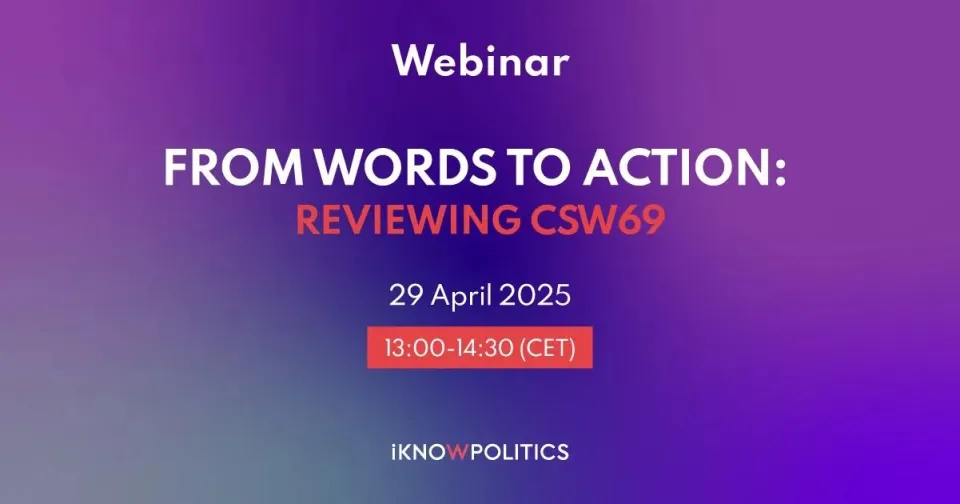Global and concerted efforts are needed if Sustainable Development goals and targets are to be met
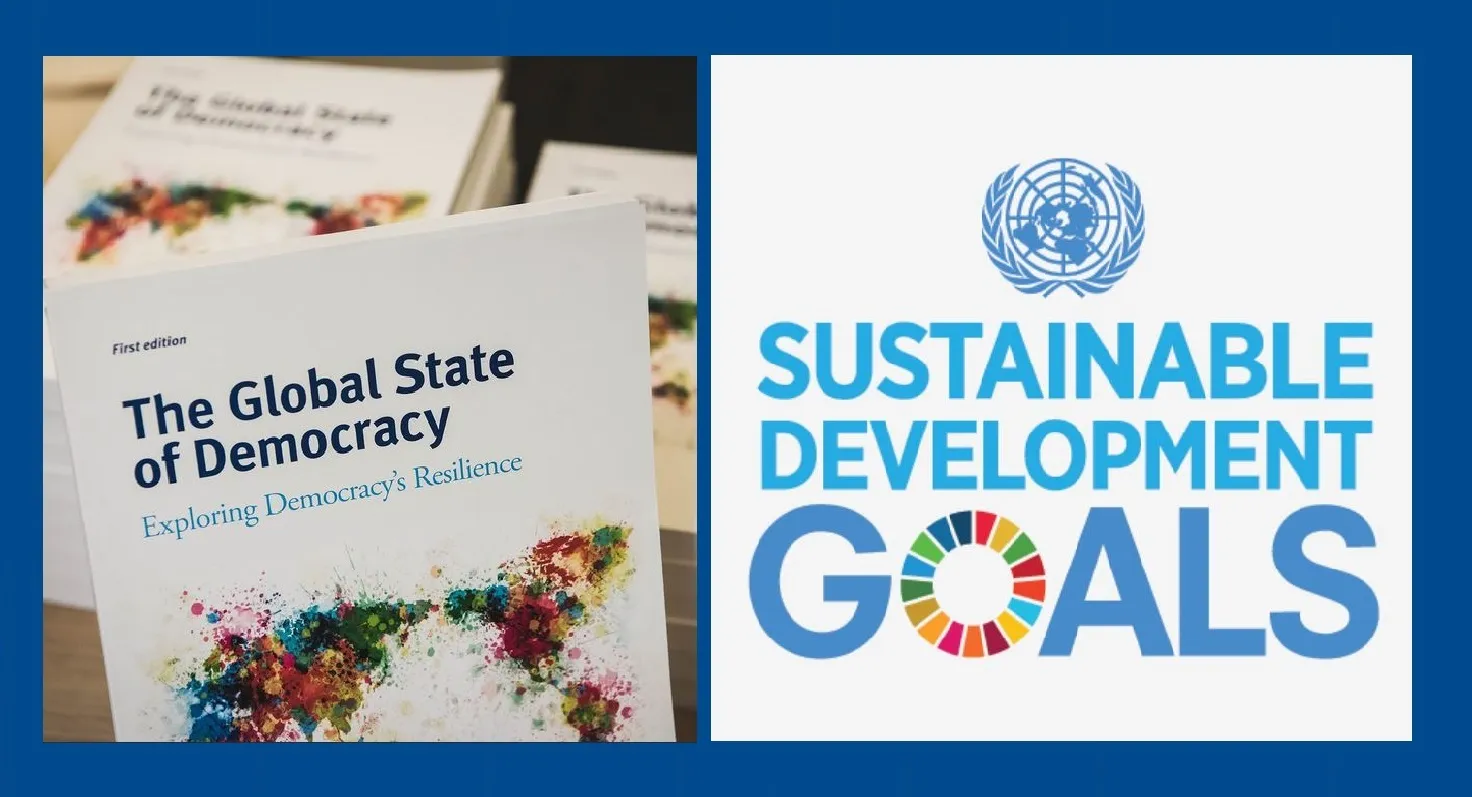
The Federal Competitiveness and Statistics Authority of United Arab Emirates hosted the second UN World Data Forum in Dubai on 22-24 October 2018. The Forum brought together a wide array of actors from national statistics offices, government institutions, international and intergovernmental organizations, the private sector, civil society, academia and media. The event was supported by the Statistics Division of the UN Department of Economic and Social Affairs, under the guidance of the UN Statistical Commission and the High-level Group for Partnership, Coordination and Capacity-Building for Statistics for the 2030 Agenda for Sustainable Development.
International IDEA representatives also took part in the Forum. In a session titled “Innovative technology and partnerships for SDG 16 monitoring”, they presented the Global State of Democracy (GSoD) project, the indices data set and the methodology behind the collection of data. There was a lot of interest for the GSoD data, particularly on its contribution to the realization of SDG 16 on Peace, Justice and Strong Institutions, but also other goals. The discussion focused on exploring common and standardized methods that ensure that the data collected does not go amiss, but rather that it is channeled efficiently towards measurable and tangible outputs, which would then feed into measurement of specific Sustainable Development goals and targets.
In fact, the very theme of the Forum was built around the moto of SDGs, which is “leave no one behind”. There was widespread acknowledgment that the collection of data, buttressed by a robust, standards-based and verifiable methodology, is of paramount importance globally. And, since this is a global initiative, there was also a consensus that the efforts to achieve the SDGs ought to be well-organized and well-concerted at the global level. One thorny question, however, which seems to be in everyone’s mind, is the how. How to go about achieving truly global efforts, in which national statistics authorities, UN bodies and agencies, international and civil society organizations, academia and the media, complement each other, rather than negate or rival each other’s work?
This question will undoubtedly be mulled over in times to come, as the collaborative work to achieving the Agenda 2030 gathers pace. With this in mind, the UN World Data Forum issued a Declaration called “Supporting the Implementation of the Cape Town Global Action Plan for Sustainable Development Data”, which recognizes that the 2030 Agenda requires “urgent new, standards-based and interoperable solutions that leverage the power of new data sources and technologies through partnerships between national statistical authorities and the private sector, civil society, and the academia and other research institutions”. Moreover, participants of the Forum resolved to ensure that “quality, relevant, timely, open and disaggregated data “by income, sex, age, race, ethnicity, migration status, disability and geographic location and other characteristics relevant in national contexts” are made available and accessible to all users”.
Through its key impact areas, and its regional and global reach, International IDEA stands in a solid position to continue with its contribution to the 2030 SDG Agenda. Its flagship publication—the Global State of Democracy—provides a unique tool of data collection and data input on the global and regional assessment of democracy. Its indices data set speaks to several targets of SDG 16 on Peace, Justice and Strong Institutions, but also SDG 1 to End Poverty, SDG 2 on Zero Hunger, SDG 3 on Good Health and Well-Being, SDG 4 on Quality Education, SDG 5 on Gender Equality, and SDG 10 on Reducing Inequalities. International IDEA will continue to foster partnerships with policymakers, civil society and academia to make sure that its data is taken into account when monitoring the progress of the SDG Agenda. In so doing, it will have offered its contribution to the global efforts of making sure that the Agenda’s goals and targets are met as planned.
